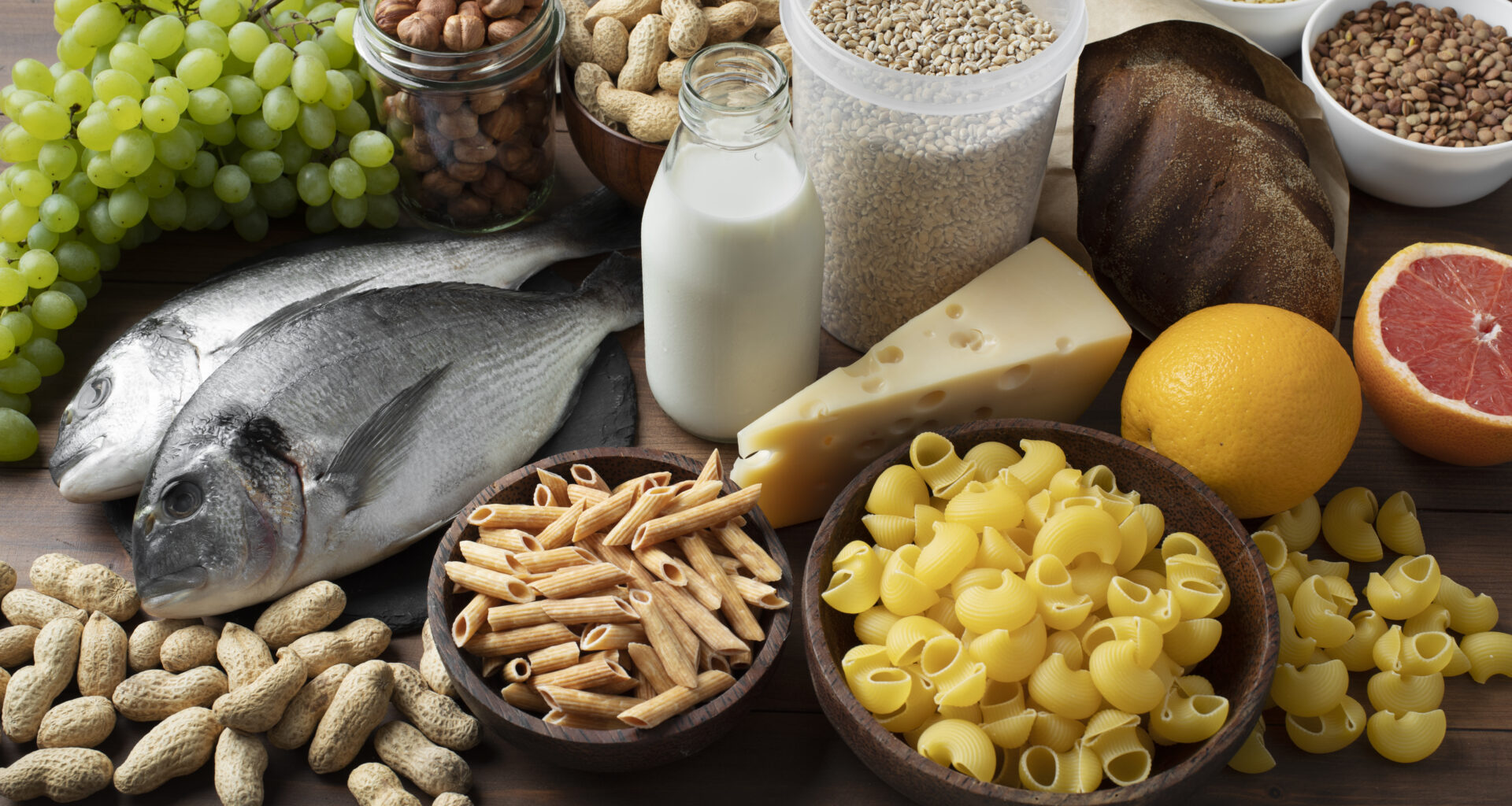Protein is a macronutrient that is fundamental for growth, building muscles, producing enzymes and hormones, creating antibodies, and so much more. In short, protein is crucial for maintaining a healthy and balanced diet. It is made up from long chains of amino acids of one or more types. There are a total of 20 types of amino acids, 8* of which are essential; meaning, they cannot be produced by our body and hence, need to be obtained from our diet. The remaining 12, our bodies can manufacture using the 8 essential ones.
Learn About Protein Substitutes
Because before we can explore alternative protein sources that are available, we need to first understand what protein actually is and how it works.
When including protein in your diet, you need to remain mindful of incorporating all of the 8 essential amino acids in order to avoid malnutrition. This is not an issue when you are sticking to traditional sources: red and white meat.
Meat (being protein itself) naturally has all of the essential amino acids already present; thus, providing complete and holistic nutrition. However, when you switch to alternate proteins, this is not the case. Most protein substitutes do not have all the essential amino acids needed for healthy protein production. Therefore, whatever your reason to switch, you need to formulate a diet that would provide you all of the necessary nutrients to adequately replace meat without any compromising impact on your health.
Read More: Mindful Eating For Weight Loss
Now that we understand the basics, let’s get to the point.
Protein Powders and Supplements
The latest trend, especially in the fitness world, are protein powders and supplements. Everyone is trying to find the perfect formula that suits their personal fitness goals and dietary restrictions, and aligns with their moral compass (Yes, I am talking about vegans and vegetarians). The supplements come in all varieties: plant-based (vegan proteins), meat-based, gluten-free (e.g. whey proteins), cruelty-free, a to z. But as good as it is to have options, decision paralysis is a real thing and it can take some time and trial-and-error to find the perfect fit for you! They are also available in a variety of flavours for you to choose the best one from.
Plant-Based Proteins

Vegan protein substitutes are for the people who avoid eating meat for whatever reason. Either they are allergic; or they don’t like the taste or texture; or they care about the climate and environmental impact of livestock farming; or they just care about animals. Whatever the reason, plant-based proteins are the answer.
There are many options in this category; most of them derived from nuts, grains, legumes, beans and lentils. You can consume these directly (e.g. quinoa or chia seeds in cereal) or have foods like tofu (made from soybean) that are processed from these sources. There are even gluten free options like amaranth that are considerably high in protein. Or if you want to try something unconventional, there’s spirulina (a green-blue algae, yes algae) and nutritional yeast too. Point being, there are countless vegan protein substitutes available to choose from, and having most or a curated combination of those included in your diet is a good way to ensure you are obtaining all of the necessary amino acids for healthy protein production.
Moreover, there is some level of protein present in vegetables too, especially green leafy vegetables. Pairing those with grains and other protein rich sources, you can have a holistic diet that fulfils all your protein needs!
Read More: How to Loss Weight
Cultured Meat
Cultured meats are one of the relatively newer protein substitutes. They refer to lab-grown or cell-based meats. Basically, it is almost exactly like meat but grown in a lab (yes, like lab grown diamonds). These are produced through cellular agriculture where animal cells are cultured and grown in a controlled environment. Being actual animal cells is why cultured meats mimic the texture and taste of actual meat, making it perfect for meat lovers who wish to reduce their environmental impact or footprint that results from consuming livestock. Plus, they pack a serious protein punch, making them a solid choice for anyone focused on getting their daily dose of muscle-building goodness. With protein content comparable to traditional meats, they offer a guilt-free option that’s not only good for the planet but also for your body. So, you can satisfy your carnivorous cravings without any of the negative consequences – talk about a win-win situation!
Read More: Maintain a Balanced Diet
Insect-Based Proteins (Yes, you read that right, it was not a mistake.)
Don’t knock it till you try it (even though I am not going to be trying it ever either).
Insects have been found to be highly efficient converters of feed into protein. The plus point being that they require way less land, water, feed and other resources, compared to traditional livestock farming. This means that there’s a dramatic decrease in the environmental impact. Moreover, insects are also (surprisingly) rich in vitamins and minerals too, making them a viable and sustainable source of protein.
Guess the Asians and Africans were really onto something and we judged them for no reason! Not to forget, Bear Grylls too!

The most common (and latest) option in insects-based proteins is cricket flour. On average, it is 60-70% protein and thus is rapidly getting recognition among protein-hungry people.
Read More: Importance of Balanced Diet
Conclusion
Although protein substitutes aren’t exactly harmful for you, they may not completely measure up to actual meat. Which is primarily why, despite the wide range of available sources, they are not widely accepted by the majority of the world (especially the passionate meat-eaters). However, lucky for you, you don’t need to go with the flow. Make your own flow and do what’s best for your personal ideology and goals. It might take some time and effort, and a consultation with a dietician/nutritionist as I would suggest, but the end-goal will be worth it!

* The 8 essential amino acids: Histidine, Isoleucine, Leucine, Lysine, Methionine, Phenylalanine, Threonine, Tryptophan, and Valine.
FAQs
You can opt for plant-based sources like tofu, tempeh, lentils, beans, chickpeas, quinoa, nuts, and seeds as alternatives to meat for protein intake.
Foods like lean meats, poultry, fish, eggs, dairy products, tofu, tempeh, legumes, and nuts are among the highest sources of protein.
Yes, oats contain a moderate amount of protein, along with other essential nutrients like fiber, vitamins, and minerals.






